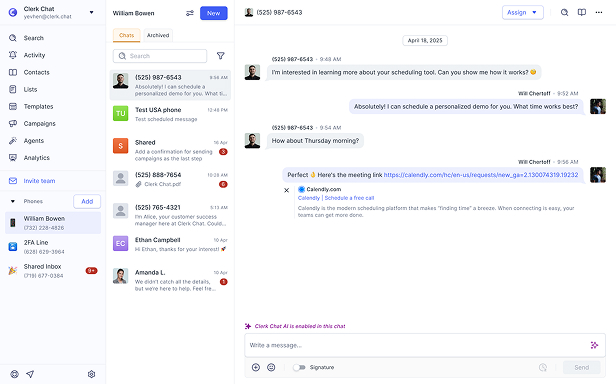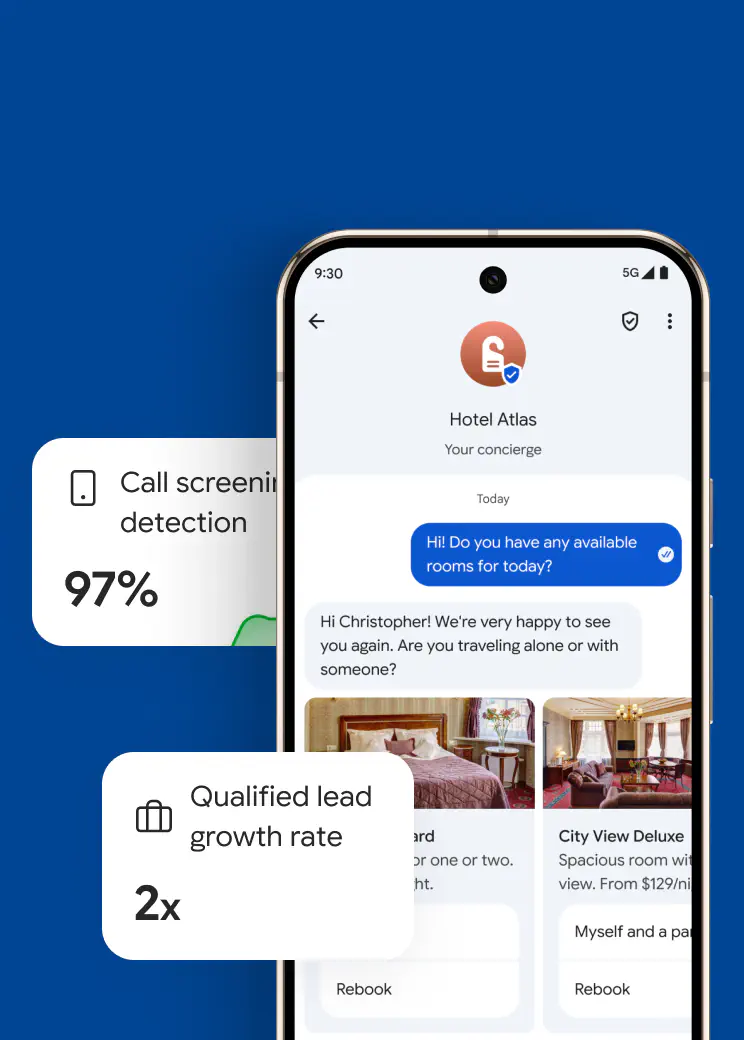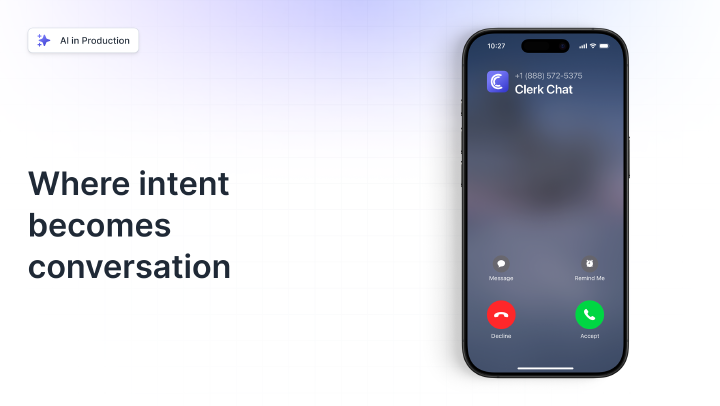BYOC
[biː waɪ oʊ ˈsiː]BYOC (Bring Your Own Carrier) allows businesses to connect their preferred messaging or telecom provider to a platform like Clerk Chat. It gives teams more control over costs, routing, deliverability, and compliance while still using the platform’s interface and features.
Why BYOC matters
Most messaging platforms include a default carrier relationship, bundling telecom and software into one service. BYOC breaks this model by giving businesses the flexibility to use a carrier they already trust or have negotiated rates with.
This is especially valuable for companies that send large volumes of messages, operate across international markets, or want to consolidate messaging across multiple tools and departments. It can also support continuity when migrating platforms - keeping your numbers and carrier while upgrading software capabilities.
Platforms like Clerk Chat support BYOC integrations with major providers, ensuring you get both flexibility and full access to platform features like AI, analytics, and CRM integrations.
How BYOC works
Here’s a step-by-step overview of how BYOC typically works:
- Choose a supported carrier - Common options include Twilio, Bandwidth, Telnyx, and other VoIP or CPaaS providers.
- Provision a number - You can bring your existing number or purchase a new one through the carrier.
- Connect to Clerk Chat - Use API keys or credentials to link your carrier account to the platform.
- Configure messaging settings - Set routing preferences, opt-out keywords, and compliance options.
- Test delivery and reception - Ensure your messages send/receive correctly and are properly registered.
- Go live - Start messaging via your own carrier, while using Clerk Chat’s UI, templates, and automation tools.
Clerk Chat ensures your BYOC setup runs smoothly and remains compliant with carrier rules and regulations.
Best practices with BYOC
Use a vetted carrier - Choose carriers known for strong deliverability, compliance support, and API performance.
Register your numbers for 10DLC or toll-free - Avoid filtering or message blocking by staying compliant from day one.
Audit deliverability performance - Monitor delivery rates across carriers and adjust routing if needed.
Centralize messaging logic in the platform - Use Clerk Chat for templates, analytics, and opt-out handling - don’t duplicate this in your carrier.
Secure your carrier account - Use strong API credentials and access controls.
Stay informed on carrier policy changes - Your carrier may update rules or fees that impact messaging.
Document all setup steps - Keep internal records of credentials, carrier setup steps, and contacts for troubleshooting.
Real world examples
Common misconceptions
While common among enterprises, SMBs also use BYOC to reduce costs or preserve existing contracts.
With Clerk Chat, BYOC is fully supported - platform features still work with your carrier.
It can, but savings depend on carrier rates, integration effort, and platform compatibility.
Only numbers from supported carriers can be integrated - some setup and verification are required.
When done properly, BYOC offers reliable delivery - especially when paired with 10DLC registration.
Related terms
In this article:
Ready to use your business number for text messaging?
Thousands of businesses are already experiencing the power of conversational messaging through SMS. Join us. Free trial and paid tiers available.
Get StartedFAQ
Have questions? We've got answers.
Find what you need quickly and clearly with our most frequently asked questions.
BYOC stands for Bring Your Own Carrier. It allows businesses to use their own telecom provider instead of relying on the platform’s built-in messaging carrier, giving more control over cost, deliverability, and carrier-specific features.
Clerk Chat enables BYOC by allowing customers to connect supported carriers (like Twilio, Bandwidth, or Telnyx). Once integrated, you can send and receive messages using your preferred phone numbers, while still using all Clerk Chat features.
It can be, especially if you already have negotiated rates or want to consolidate usage. However, cost savings vary by use case, message volume, and carrier pricing, so it’s best to evaluate both options.
Number hosting means keeping your number while routing traffic through a platform’s carrier. BYOC means you control the carrier relationship directly, and the platform connects to that carrier via API.
Yes. Even if you use your own carrier, you must still follow 10DLC or toll-free registration rules. Clerk Chat can guide and support compliance, no matter the setup.
Consider BYOC if you want carrier flexibility, already have a trusted provider, or want to maintain consistent routing across platforms. It’s especially useful for enterprises or telecom-savvy teams.



